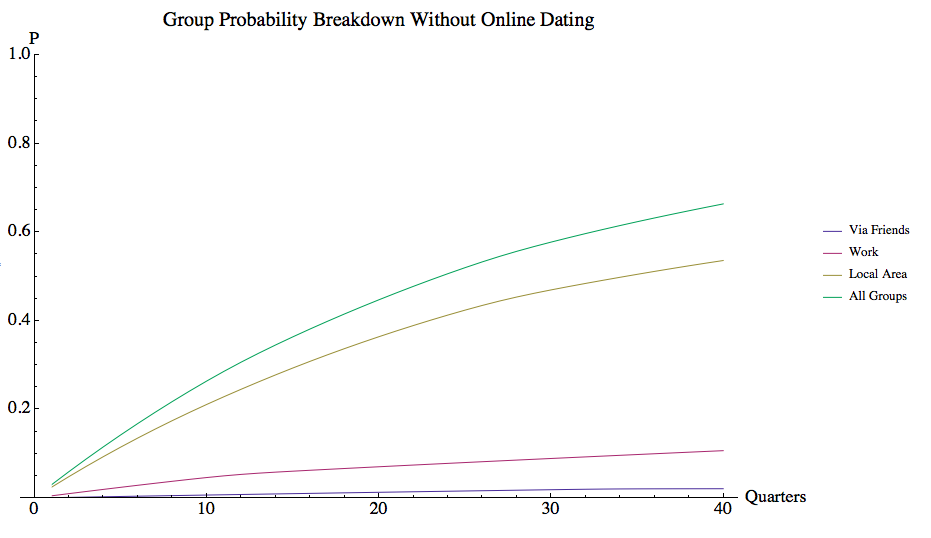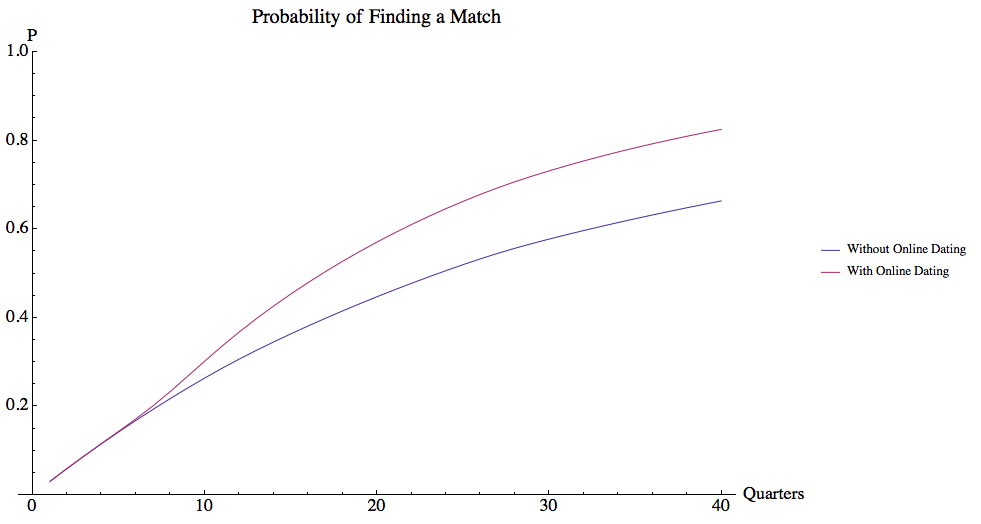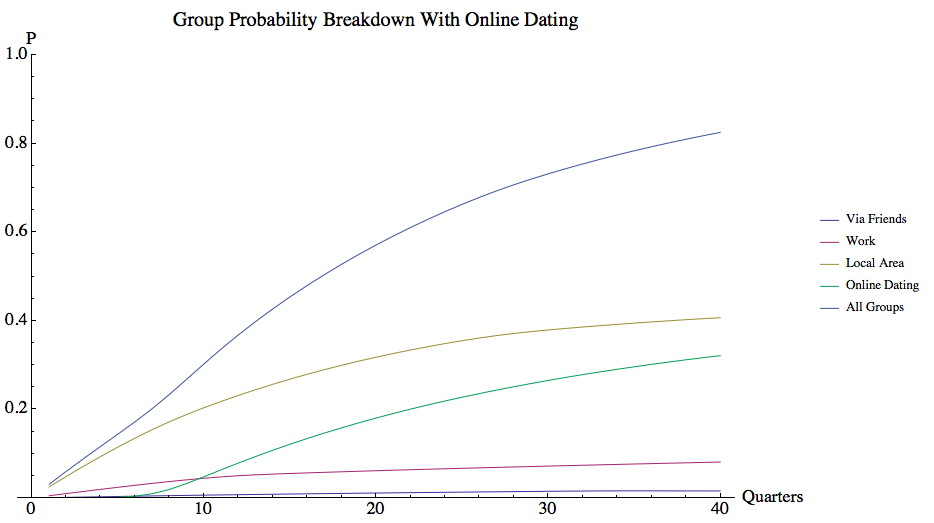This is a bit of a no-brainer: online dating increases your exposure to more people than you ordinarily would run into each day. Sometimes that’s not so good:

But let’s face it, it’s not always easy to meet people you want to meet and the one might be out there. There’s pretty minimal investment in online dating, for better or worse. If you use a site like eHarmony or OkCupid, they do a bit of work in figuring out your personality and finding matches that you’d likely be compatible with. That makes things even easier.
But is it worth that minimal investment? The costs of premium services, frustration of having your messages ignored, objectifying remarks, and simply the wherewithal needed to maintain yet another online account?
If you have thick enough skin, yes. It’s all in the math.
We can use a few portions of the Nanaya’s algorithm to show the impact. At a high level, there are two major factors that govern whether or not you will run into a match: how you interact within groups you belong and the chance that, upon any given encounter within a group, that a person will be your type.
I’ve used values from a volunteer who lives a rather normal, post-college life in the same city she was raised. She isn’t too picky but because there isn’t too much variation in social habits, the odds of someone new popping up aren’t distinctly high. In fact, the ideal environment for meeting compatible matches, work, is also one of the worst because of low turnover rate. She isn’t very picky but just enough that people she’ll run into out on the town will probably not be her type but a group of close friends has a different distribution of personalities than the city itself. Distant friends, family, and strangers met traveling are the smallest contribution.
Let’s look at her odds without online dating:

The relative probability is shown for each group normalized by the “all groups” probability for that given point in time. You can compare this to the “stacked line” plot on the main page of Nanaya.
So what happens if she starts to go on a few online dates from people online starting in a year at a frequency of about one date every two months?

We can see the group breakdown for the real effect of online dating. It’s pretty dramatic, especially considering how many more people she meets elsewhere!

Some people might notice that it’s seems incorrect to separate potential matches from the local area from other, similarly local places (i.e. work and online). There’s undoubtedly validity to that argument but biased sampling, i.e. real human interactions, indicate otherwise. There are different personalities demographic, especially considering the size of the local population and the way data is aggregated. We also assume that there exists a sufficient sample of compatible men online for the volunteer to date, but most metropolitan areas are well populated when it comes to online dating and most sites do a good job of filtering. It’s that filtering that really helps the “signal to noise” problem in finding compatible partners.
Fortunately for my volunteer dating, let alone online dating, isn’t an issue. She’s actually happy in a relationship! After running the prototype, Nanaya predicted she should stick with it. A decision she had already confidently made. Good news for the volunteer and good news for continuing validation!
But the impact of online dating isn’t exclusive to that volunteer. All validation studies have shown it to be a rather significant part of improving romantic outcomes, ceteris paribus, anyway.
If you are interested in increasing your odds in finding a match, I recommend having an online dating account. Even better if the site is well trafficked and has personality testing. Log in now and again to search for new people and check on your inbox, but don’t take it too seriously. Why? That gets into ceteris paribus and that’s the subject of a later post.
